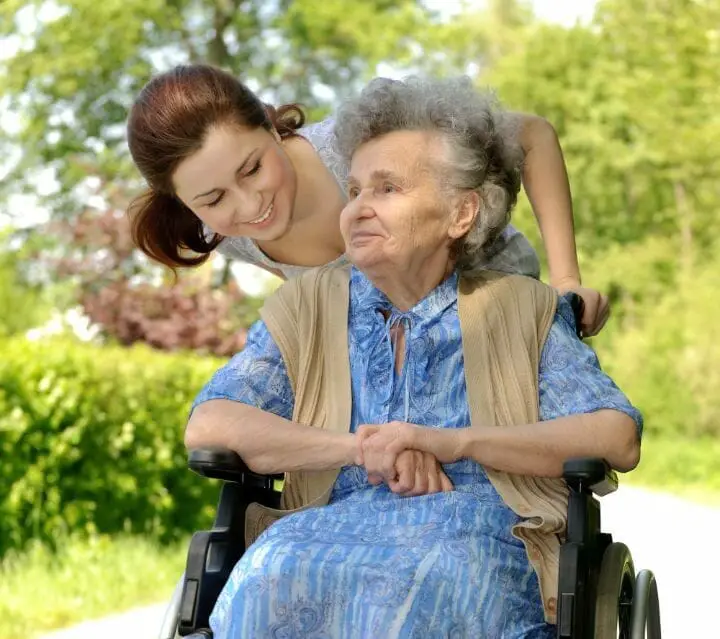The job of a caregiver is challenging to say the least – it can get very taxing physically, as well as mentally in some cases. The older your client is, or the more physically challenged your client is, the more difficult the routine becomes for the caregiver.
Being the owner of a non-medical home care business, while it is important for you to draft a comprehensive job description for recruiting the best available caregiving talent, it is also important for you to instill confidence in the applicant by offering at least a competitive salary as well as equipment that will make the daily tasks easier, especially the physically heavier ones.
Contents
What Are the Duties and Responsibilities of a Caregiver?
When you own and manage a non-medical home care business, you would ideally want to have only the bare minimum staff on permanent payroll and hire other employees on a contract, to closely align employee strength to the business volume.
Therefore, it is expected that when you put out a hiring notice, you will have a fair idea about the job description. Below, we have tried to draft a comprehensive job description for your reference – most likely, when you are hiring you would need a subset of the below roles and responsibilities.
The fundamental responsibility of a caregiver is to improve the quality of life for the elderly client. The below job description comprehensively captures all responsibilities that you may ask your new hire to fulfill in her role as a caregiver.
Having said that, you should request her to be ready to reasonably step outside the below duties, if the need be.
Personal Hygiene and Care
- Bathing, Brushing, Toileting, and Dressing: Maintaining personal hygiene and care constitutes a major part of the responsibilities of caregiving. Elderly clients are often physically challenged and need help with cleaning activities. The caregiver must accompany and help the client in the bathroom and on the toilet, as required, to reduce fall risks and make it convenient for the client to complete daily activities. Clients are encouraged to equip their bathrooms sufficiently to make this process easier and to encourage independence as well as maintain dignity. Bathing is recommended at least 3 times a week.
- Managing incontinence issues: Sometimes, depending on the client’s health, previous experience in the management of incontinence problems is a nice-to-have skill.
Mobility and Activities
- Transfers: In case the client is physically challenged, 6 – 7 transfers a day is required for movement from the bed onto a wheelchair and vice versa or from wheelchair to bathtub and back to the wheelchair.
- Repositioning on the bed: In the event client is bedridden most of the time, the candidate will be required to reposition the client on the bed, to avoid skin sores and ulcers from continued pressure on the skin.
- Mobility Assistance: Helping the client to get on a wheelchair, or to transfer onto the car from a wheelchair and stowing the folded wheelchair in the car trunk.
- Taking the elderly out on a wheelchair or other mobility aide or just be a companion: Regularly accompanying the client on short trips around the neighborhood on a wheelchair; If your client is able to walk, the successful candidate needs to accompany her for evening walks.
- Encourage to participate in activities or hobbies: The caregiver needs to encourage the client to remain active. This is normally done by researching relevant events in the neighborhood and driving them down to the event on the day. Alternatively, encourage them to take up a hobby like gardening, physical abilities permitting.
- Communication: The candidate will also be responsible for encouraging and facilitating continued communication with family members of the client, through electronic means. This is particularly true for clients who are suffering from dementia or Alzheimer’s and often forget phone numbers or even relationships.
You may also like Making a Non-Medical Home Care Business Plan
Household Chores
- Making meals: Depending upon the client’s requirement (in most cases true if the client is staying alone), the candidate may have to cook meals. It is important to understand the diet requirement of the elderly client, and as recommended by the physician. The candidate is expected to have access to the client’s prescriptions regarding diet and will be expected to cook elderly-friendly and healthy meals. A related responsibility will be to keep an eye on food inventory and alert the client in case inventory is low. The arrangement to restock groceries will be worked out on a case to case basis. In case the candidate incurs any cost of grocery shopping, all costs will be reimbursed along with the next payment cycle (presentation of bills or invoices is required).
- Cleaning homes and laundry: This is one more responsibility that the candidate may have to fulfill in this role, particularly if the client is staying alone or does not have any family help.
- Systematic Storage: An important part of the daily job roles will be to systematically store frequently accessed items and important papers. Some examples include placing a well-stocked first aid box in a highly visible area, relevant medicines in a pillbox, important phone numbers should be stored on a phone and enabled for one-touch calling, and utility bills should be made handy.
Health and Treatment
- Helping in physiotherapy: A majority of home care clients may have on-going physiotherapy routines, prescribed by their doctors. The successful candidate will have to assist the clients to successfully complete the physiotherapy and monitor improvements in their health, as required.
- Medication: While the candidate is not required to administer medicines, the position will often require the candidate to remind the client to take medicines on time, particularly important if the client suffers from short term memory loss or reduced cognitive abilities.
- Health monitoring & doctor’s visits: Closely monitoring the clients’ health and being able to manage doctor’s appointments is an important part of the job. Depending on the client’s mobility, the candidate may have to drive her to the doctor’s.
It will also be the ongoing responsibility of the successful candidate to assess and monitor the situation at the client’s home on a daily basis and bring it to the notice of the employer in case of any major roadblock to caregiving arises or any emergencies occur.
You may also like What Is the Profit Margin of Non-Medical Home Care Business?
How Much Do Non-Medical Caregivers Make?
The salary for a caregiver depends on the job responsibilities – having said that, the national average salary of caregivers in the US is about $23,000; Most of these jobs are contract opportunities and are paid on per hour basis.
The pay ranges anywhere between $12 – $25 per hour, depending on how physically straining the job responsibilities are. The salary also depends on your experience, your credentials, and how highly your past employers have recommended you.
What Skills and Credentials Should a Caregiver Have?
- Certifications: To make a care giver’s profile more desirable in the job market, it is a good idea to complete certifications provided by the American Nurses Credentialing Centre (ANCC) or the Canadian Nurses Association (CAN), depending upon if she is located in the US or Canada. However, these certifications are not a mandatory requirement for a non-medical caregiver position.
- Previous experience working with an elderly client: This is probably the most sought-after skill or credential that will help a caregiver get hired. The higher the number of years of experience the better should be the per hour remuneration for a given set of responsibilities.
- Strong communication skills: It is often necessary to communicate very clearly with the elderly patients to facilitate better understanding as well as setting expectations correctly.
- Patience: There will be enough instances where your patience may be tested, particularly if your patient suffers from memory loss or dementia. However, patience is the key to dealing with such situations and a caregiver must have loads of patience.
- Compassionate: Compassion sets a successful caregiver apart from the rest. If the candidate is a naturally compassionate person, she is most likely fit to be a good caregiver with some basic training.
Ask for References
It is absolutely essential in this business to get as many reliable references as possible – in fact, unlike many other professions, this step must be given equal importance to the personal interview interactions that you have with your potential new hire.
A past employer or a current elderly client will be the best source of reference as they have directly worked with the potential candidate and will know much about her work ethic and personality.
Over a period of time, as you work in your local area, you would develop good relations with the available talent in that area, and you would be relying less and less on third party references – except in the case of first time hires.
You may also like
Conclusion
Recruiting right is extremely important for the success of your non-medical home care business. Your staff will ultimately uphold the values of your organization and will be ambassadors, representing your business to clients.
A well-defined job description goes a long way in setting expectations right, from the start, and reduces the likelihood of additional job roles cropping up, that were not discussed during the hiring process.



